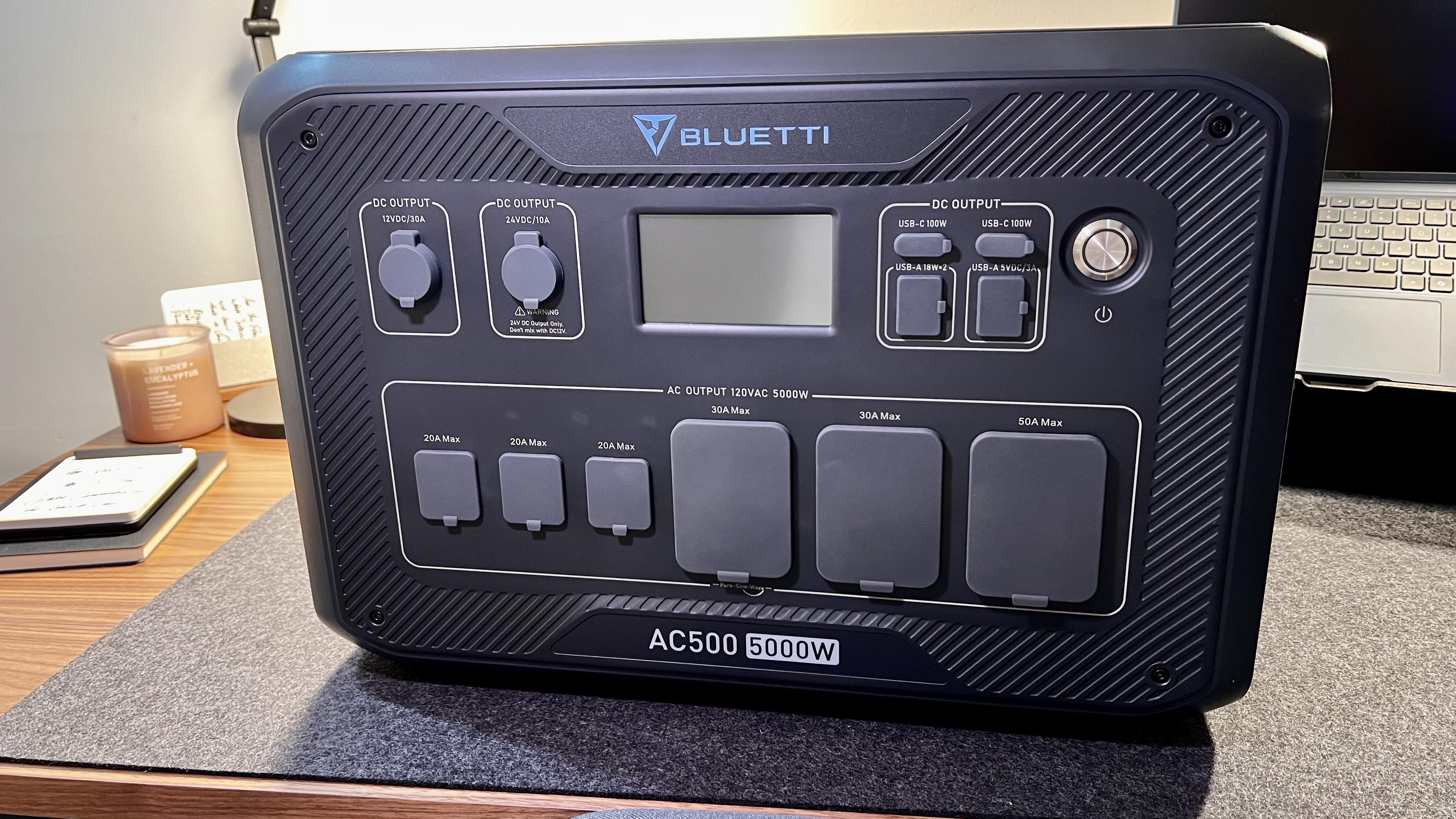TechRadar Verdict
The Bluetti AC500 Portable Power System excels in home backup and off-grid scenarios with excellent expandability and reliable performance.
Pros
- +
Powerful 5,000W output
- +
Modular expandability up to 18.4kWh and additional batteries
- +
Solar input can support up to 3,000W charging
- +
Quiet operation
- +
Great port selection
Cons
- -
Heavy and bulky; not ideal for frequent portability
- -
Relatively expensive, especially with additional batteries
- -
Touchscreen could be more modern and informative
Why you can trust TechRadar
Portable power stations have grown in popularity over the years with the rise in battery technology and the push for solar power. At first, these were backup-only solutions, now they can be used for off-grid power solutions as well. Over the years Bluetti has grown as a serious contender in the Portable Power Station realm, especially with powerful models such as the AC500 and AC300 inverters, with their respective batteries.
After reviewing all the best portable power stations, we can safely say the Bluetti AC500 represents the latest in modular energy solutions, offering homeowners, RV users, and off-grid enthusiasts a scalable, reliable, and eco-friendly backup power system.
The AC500 specifically boasts a 5,000W pure sine wave inverter and compatibility with up to six B300S batteries totaling nearly 24,000Wh of usable battery. The AC500 can power a wide range of devices, from small electronics to essential household appliances like refrigerators and HVAC systems. With solar input support, seamless expandability, and the ability to run silently indoors, Bluetti has positioned the AC500 as one of the most powerful modular plug-and-play energy systems available.
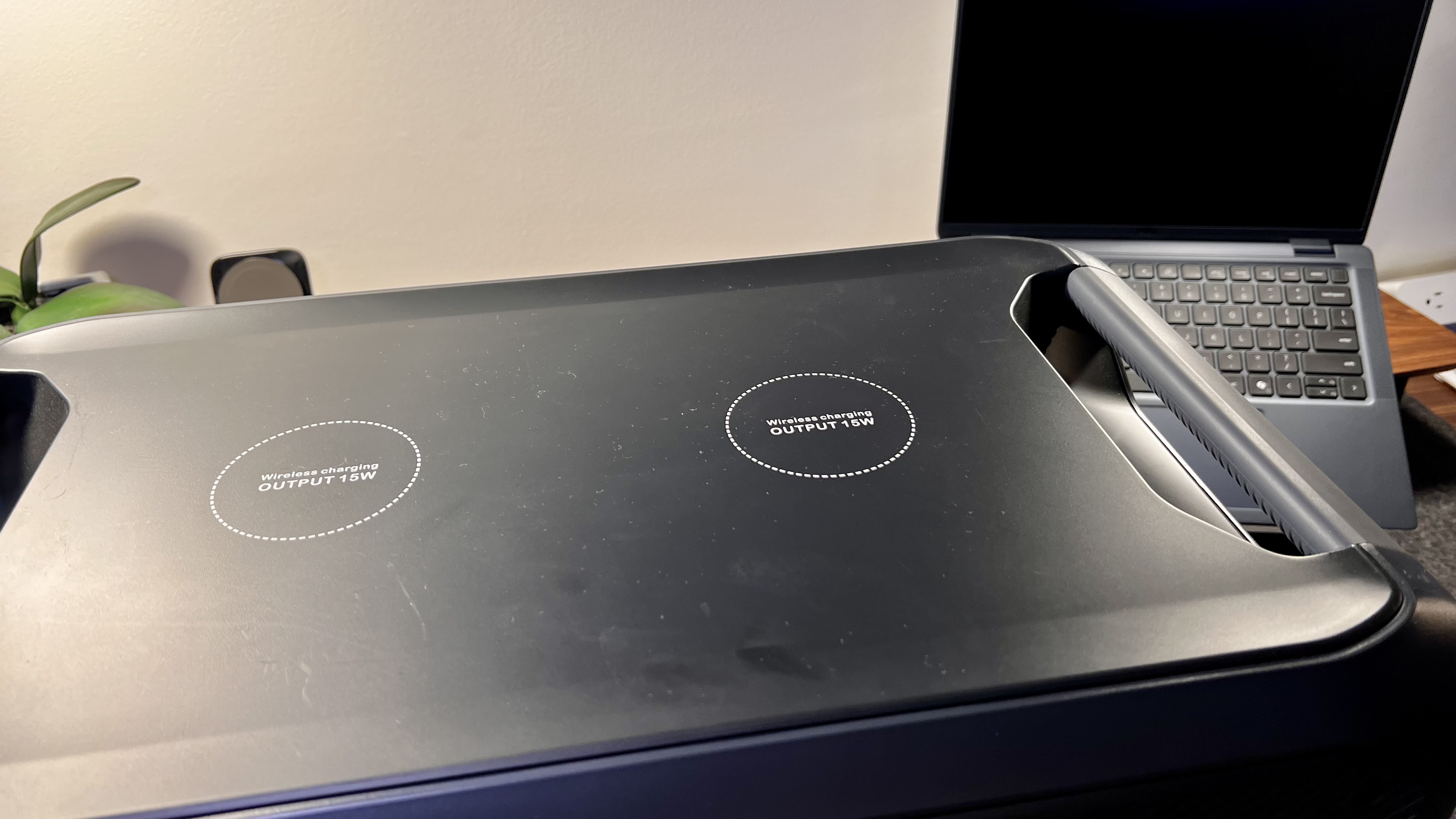
Bluetti AC500: Pricing & availability
The Bluetti AC500 starts at $2,600 for the standalone unit, but you'll need to purchase compatible external batteries such as the BS300S to store the energy that the BS500 inverter will utilize. Bluetti offers a bundle with the AC500 and a single B300S battery for $4,500. For those who need a full setup with six batteries, it will cost upwards of $10,400.
While the upfront cost may be high, the modular nature of this portable power offering from Bluetti allows for incremental upgrades over time as needs -- or budget -- allow. Bluetti is also notorious for offering frequent discounts on its products, making this incremental build a bit more budget-friendly.
You can purchase the Bluetti system directly from Bluetti's official site, or through online retailers such as Amazon.
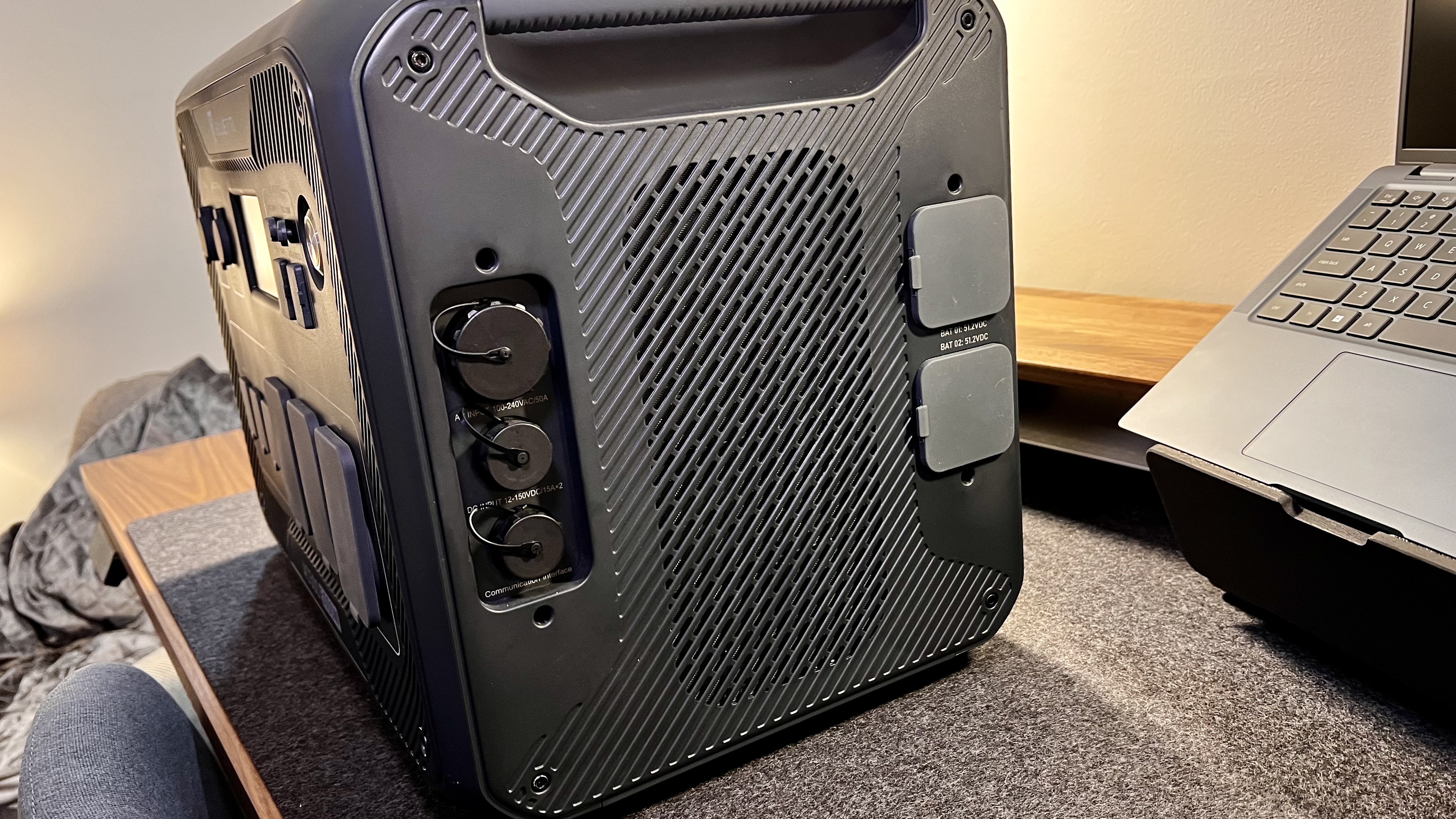
Bluetti AC500: Unboxing & first impressions
The AC500 arrives in a hefty box that includes a lot of padding. The AC500 is fairly heavy, and from the first time I picked it up, I recognized the quality build and overall durability. Additionally, I could tell that this setup, while technically portable, is not fun to move around such as a power bank or something I'd throw in the back of my Jeep. This power station is more designed to be put in place and left there, with the understanding that it can be moved, thus the portable part of the name, however, it's not going to be something you move frequently, weighing nearly 70lbs / 30kg.
In the box are the Bluetti AC500, the power cables for both AC and DC input, a manual, warranty cards, and solar charging cables. My BS300S (I chose to start with one, but will most likely be expanding sometime in the future as my needs expand) came in a separate box.
Bluetti AC500: Design & build quality
Inverter: 5,000W continuous / 10,000W peak
Battery (optional): B300S (3,072Wh each, up to 6 units)
Max Capacity: 18,432Wh with six B300S batteries
Solar Input: Dual 1,500W MPPT (up to 3,000W total)
AC Output: 120V single-phase, multiple 20A/30A outlets, 50A port
DC Output: 12V/30A, 24V/10A, 12V car port, USB-C (100W), USB-A (18W)
Weight: 66 lbs (30 kg)
The Bluetti AC500 has a very boxy and rugged design with built-in handles on the top sides and wireless chargers integrated into the top. Bluetti chose durable and high-quality materials to help ensure a sturdy and reliable product, even with heavy use. The feet have non-slip rubber and the handles have a nice grip to them, plus Bluetti has designed the different elements to stack quite nicely, allowing for a sleek and streamlined setup. I have the battery on the bottom and the AC500 on top of that. If you have multiple units or multiple inverters, you can even intermix the stacking as seen in the picture below, which goes to show that Bluetti has used the same design and footprint across their product lineup.
The touchscreen interface is simple and easy to navigate, though the plastic finish and low resolution feel a bit dated especially compared to my iPhone 16 Pro. Similarly, the touch screen's response feels a bit sluggish compared to the same phone, but for the few times I use the OSD for checking battery levels and enabling outputs, it's just fine. Most of the time, I use my phone to control the settings anyway.
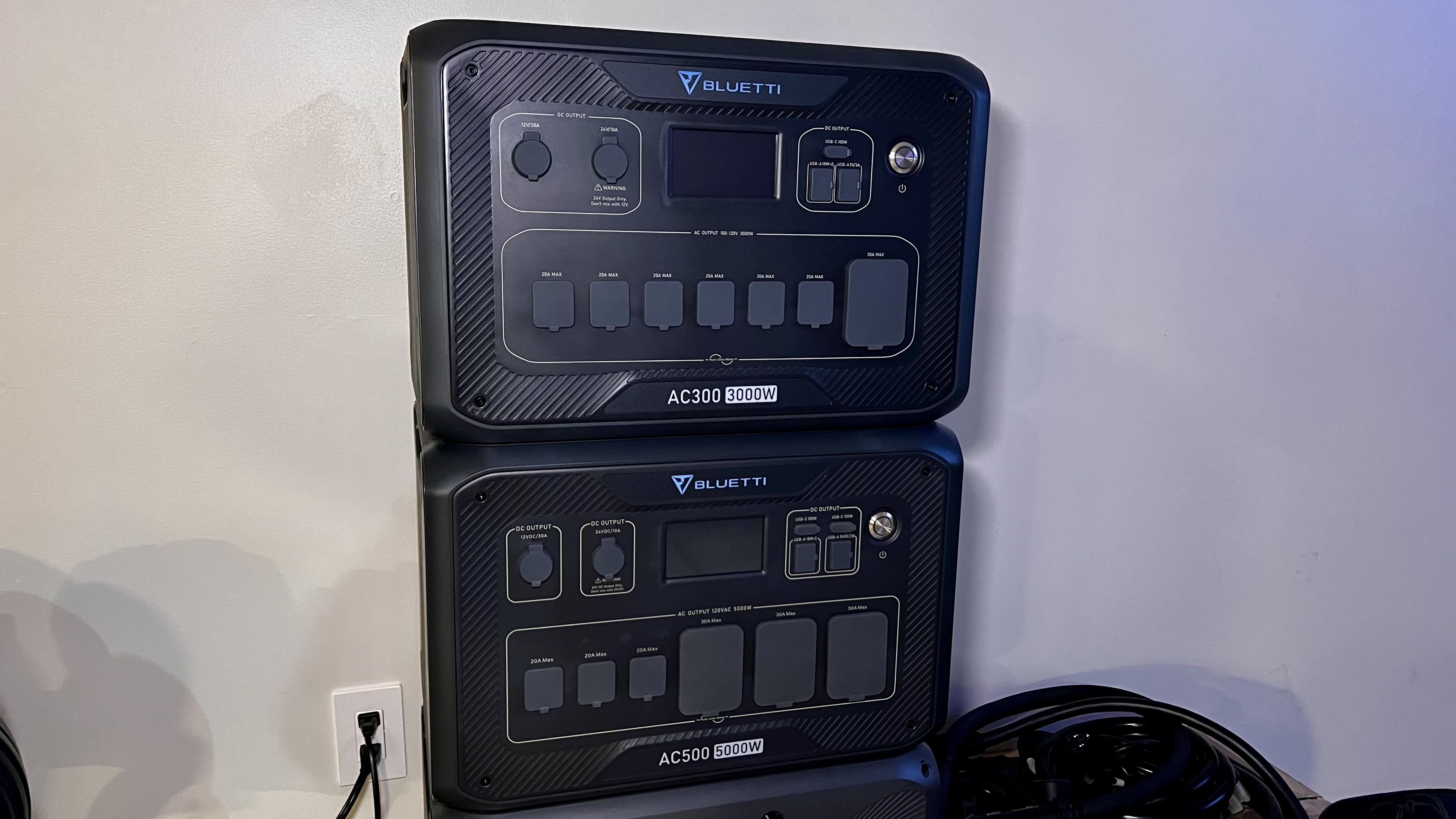
Bluetti AC500: In use
The AC500 performs wonderfully, and even a bit better than expected in my real-world testing. Shortly after arrival, the area where I live experienced a huge storm. A good friend of mine lives in the country about 30 minutes away from my house and they lost power entirely to their house and outbuildings on their farm due to a downed power line. Since it needed extensive repair, we knew he would be out of power for quite a while (turned out to be only a couple of days). We were able to set up the AC500, AC300, and their appropriate batteries to run his entire farm with ease. On the AC500, we were able to run his freezer, fridge, lights, a well pump, and the first stage of his HVAC unit. The AC300 was able to easily run his barn with basic lighting and a corn dryer.
One of the major advantages is the ability to use this system indoors, as it produces no fumes and operates quietly even under high loads. Fans kick in under very heavy use, but they are still very quiet all things considered.
In this scenario, we didn't get a chance to integrate solar panels, but if we had the time, we could add up to 3,000W of solar panels, that can power the inverter, and any excess power can be stored in the connected batteries.
In off-grid use cases, the AC500 can also be re-charged with a standard car outlet, though it will charge considerably slower than a standard wall outlet.
| Attributes | Notes | Rating |
|---|---|---|
| Design | Powerful and rugged design | ⭐⭐⭐⭐⭐ |
| Ease of use | Easy to use | ⭐⭐⭐⭐⭐ |
| Practicality | Practical for the right audience | ⭐⭐⭐⭐ |
| Price | High priced | ⭐⭐⭐⭐ |
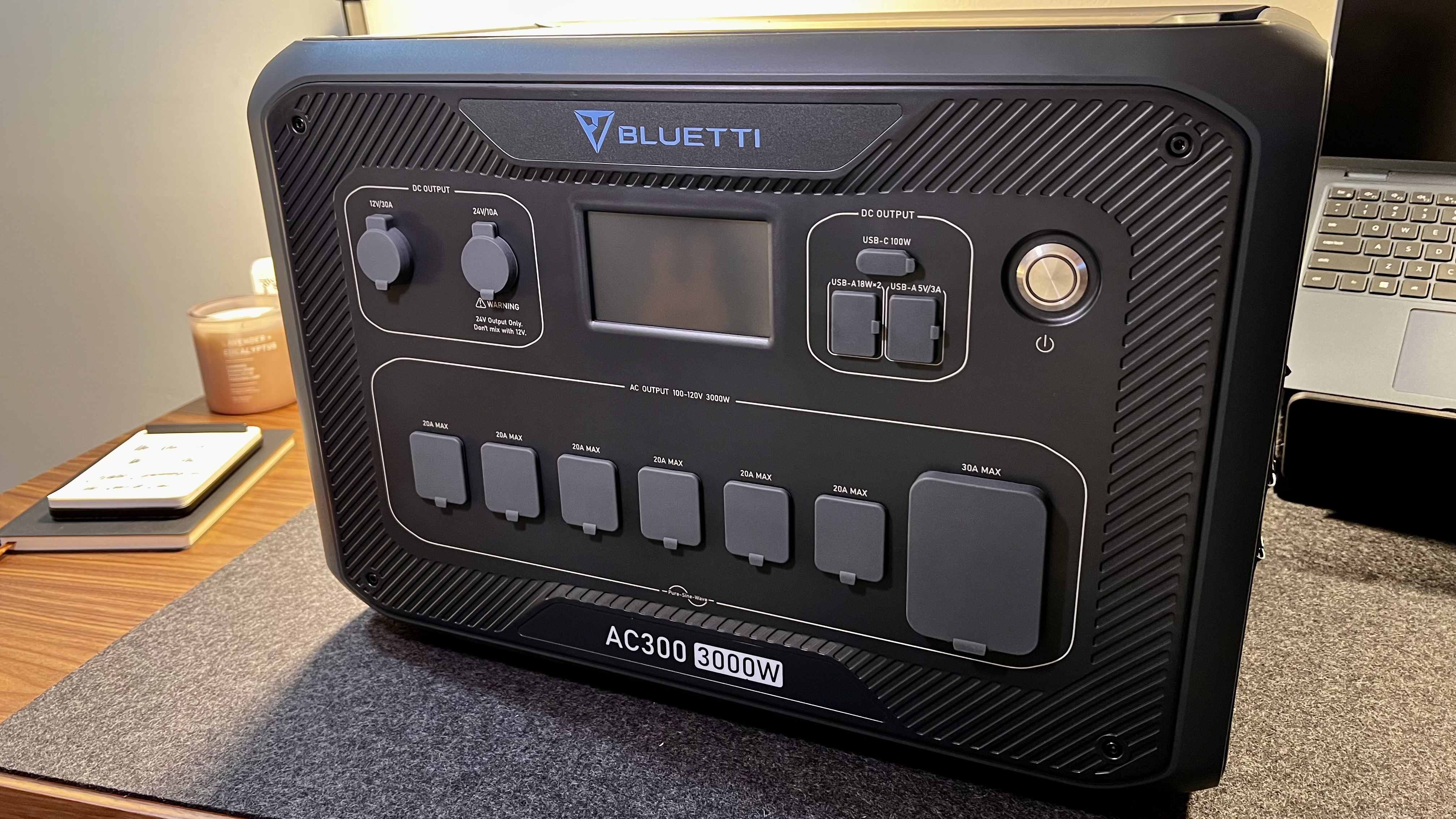
Bluetti AC500: Final verdict
The Bluetti AC500 is an excellent choice for anyone in need of a powerful, expandable energy solution. Its ability to scale up to six batteries, combined with a robust 5,000W inverter, makes it ideal for backup power and off-grid living. While its lack of a built-in battery and 120V limitation might be drawbacks for some users, it excels in most scenarios, particularly with solar integration and modularity. At its price point, it’s a serious investment, but one that pays off in reliability and performance. If you are looking to get started in your power station journey, make sure to check out the Bluetti AC500 Portable Power Station System.
Former TechRadar Pro B2B Hardware Editor, Collin has been in journalism for years, with experience in small and large markets, including Gearadical, DailyBeast, FutureNet, and more.
